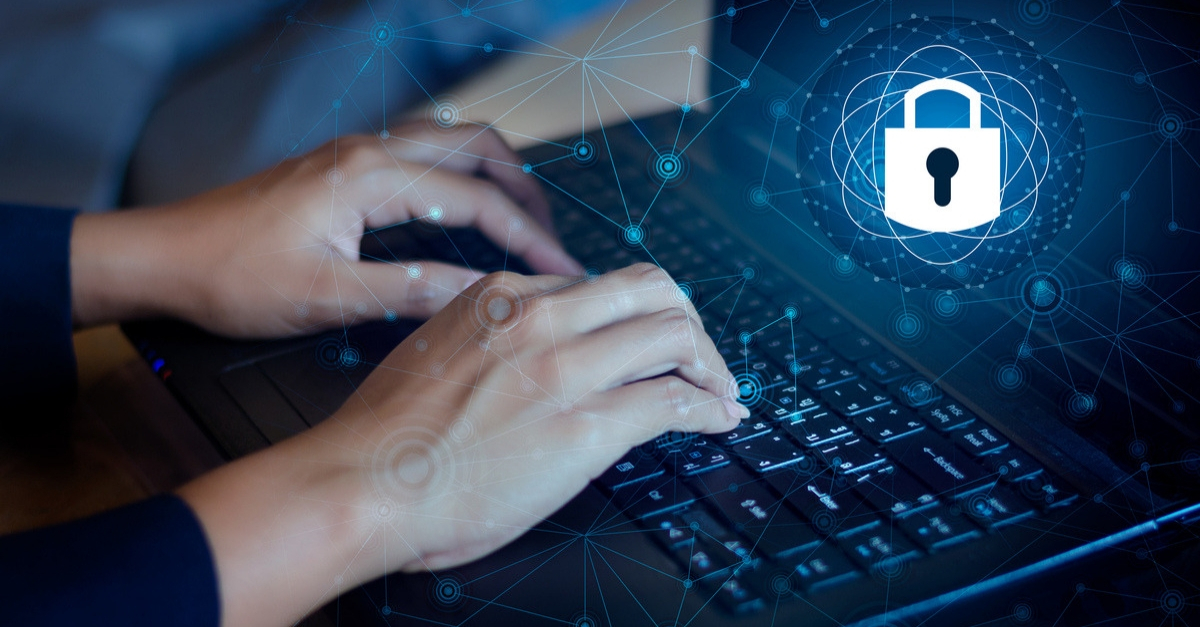Today is Data Privacy Day. And, to celebrate, we asked our security experts to share their top tips for protecting your privacy online.
Enable multi-factor authentication (MFA) – Benedict Jones
Given that cybercrime now makes up the majority of fraud-related incidents, I recommend enabling multi-factor authentication wherever possible. This adds an additional layer of protection against someone trying to access your personal accounts.
Use a webcam cover – Victoria Townsley
It’s not impossible for hackers to access your webcam. Keep yourself protected and have peace of mind by using a webcam cover.
Use complex passcodes for your devices – Alice Duckett
It’s not just passwords for your email addresses and social media accounts that need to be secure – ensure that your laptop and mobile phone are secure too. I recommend phone passcodes to be at least six digits.
Be aware of what apps you use – Matt Boddy
Always check the permissions an app is asking for before you download it to your personal device. It’s also important to delete any apps that you don’t use anymore.
Know what you’re sharing on social media – Anna Brading
Check your privacy settings on social media. Make sure you are aware of who can see your posts, and lock down your accounts as much as possible.
Check your digital tattoo – James Burchell
It’s not all about what you’re posting online, it’s important to be aware of what you’re using online. Do you have old social media or email accounts that you don’t use anymore? Delete them.
Don’t send sensitive data in an email – Rajeev Kapur
Be careful about what information you send via email. Ask yourself, could there be an implication if someone was to access this information?
Don’t reuse your passwords – Mark Stockley
The simplest upgrade you can make to your personal security is to have unique passwords for everything you use.
Be careful what you share on social media – Herb Weaver
Information such as your date of birth or address gives cybercriminals usable information about you. Equally, sharing when you’re going on a trip can alert local criminals that your home will be empty.
Keep your software up to date – Rawan Missouri
Keep your software up to date on all your devices. Updates patch flaws that cybercriminals can take advantage of. If you don’t update, you risk leaving yourself vulnerable to attacks.
And finally…
Every day is Data Privacy Day – Paul Ducklin
Today might be the official Data Privacy Day, but remember it’s Data Privacy Day tomorrow, and the day after, and the day after that. It’s like Quit Smoking Day – you take it on for the rest of your digital life.

Simon McAllister
“Use a webcam cover”. Good advice. How about the microphone?
Avoid integral webcams that don’t have a means of isolation i.e. an on/off switch – use a webcam that can be unplugged. If it has a microphone built-in, it will also be isolated
Anonymous Coward
I’m afraid I can’t agree with Alice Duckett.
Password complexity makes it harder for you to remember your password, but no harder for a computer to guess. Password length here is the main factor. If you can keep your passwords above 20 or so characters, such as a phrase that is meaningful to you and easy to remember and type, it will make it far harder for the hashing algorithms to guess it.
Similarly, a good and unique password should not have to be changed frequently, and certainly not on a phone, which doesn’t support remote logins. But even on a phone, the longer the passcode, the better.
Paul Ducklin
If you can remember your phone number, you can remember a 6-digit PIN!
For the record, Apple phones now have 6 digits as a minimum passcode length, so it’s not just us saying that 6 digits are better than, say, 4 (which was Apple’s old minimum, until a couple of years ago).
Simon McAllister
Apple encourage 6 digits by default, but still allow you to drop down to 4. Is 4 digits still an issue if the device is set to wipe after 10 failed attempts?
Anonymous Coward
I’m not saying that 6 is too long, I fully support very long PINs. I’m asking, what is the benefit of changing your phone’s PIN frequently?
Paul Ducklin
Oops, I was answering what Alice said in the video we produced, rather than what was written above. Sorry about that.
I’ll remove that bit about “changing passwords often” because I agree that, in and of itself, you don’t need to do that. Changing passwords needlessly just makes it more likely you will fall into a bad habit (such as changing from 000001 to 000002 to 000003 and so on) or keep forgetting the new password and getting needlessly frustrated.